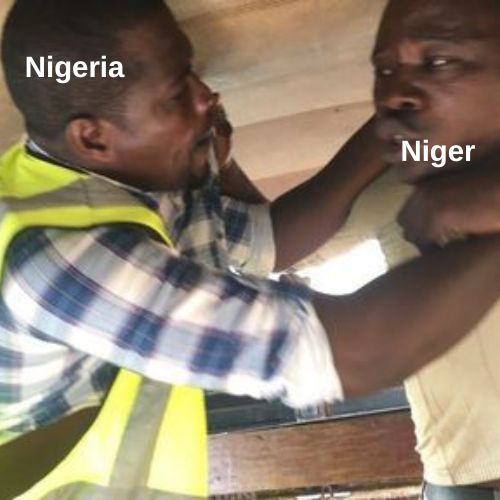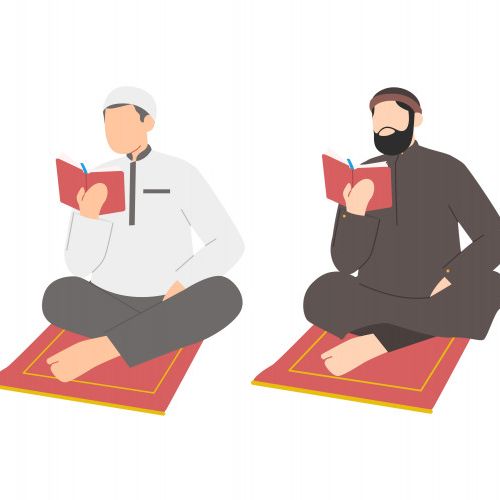The Nigerian experience is physical, emotional, and sometimes international. No one knows it better than our features on #TheAbroadLife, a series where we detail and explore Nigerian experiences while living abroad.
Today’s subject on #AbroadLife is the main character in a tale of three countries. After deciding to study abroad nine years ago, he was finally able to in 2021. He talks about being the only black person in an English town, having a fun time living in Greece, and dealing with the language barrier in France.
Where are you right now?
I’m in Nantes, France.
How did you get there?
I got an Erasmus Mundi scholarship to study for my Master’s degree in Europe, and it’s taken me through three countries so far. It’s a joint Master’s degree programme and it’s administered by three universities in three different countries, with full tuition paid.
Wild. When did you decide to leave Nigeria?
In 2013. I got into a federal university in 2012 and was admitted to study Fishery and Aquaculture. I wanted medicine, but that’s what they offered me instead. So, I spent my first year trying to be serious and get good enough grades to help me cross into Pharmacy at the very least.
I didn’t know anything about scholarships at the time. The people who ran printing centres in school would come to class and tell us to apply for scholarships. But I always thought it was a scam just to collect the ₦1,000 registration fee.
The following year, I started seeing my friends get some of the popular scholarships at the time; MTN, NNPC, Agbami, etc. These people didn’t have grades as good as mine, but they still got scholarships worth around ₦100,000 to ₦200,000 every year.
That’s when it really hit me that scholarships were a thing. I made the decision that I would get a scholarship to study abroad for my Master’s degree. The first reason was that I wanted to become an expert in my field, and the second reason was that I knew I could do it. I started researching and documenting things in my final year.
When did you start applying for scholarships?
In 2019, during my NYSC in Akure. I applied for two scholarships in the Netherlands and the UK. I was actually hopeful because my grades were stellar, but I was served breakfast on both sides.
LMAO. What did you do next?
I got a job upon completion of my NYSC, and I started thinking about ditching my scholarship dream because I was making enough money from it. On the other hand, I had nothing to lose if I didn’t get a scholarship, so I decided to try again. The only difference was, my motivation wasn’t as high as it was before. Money can distract you from your dreams, to be honest.
The next year, during COVID, I applied for two more scholarships. One of them was the Commonwealth scholarship administered by the UK government, and it was the one I eventually got. I was selected to get funding to study in the UK, but sadly, it didn’t happen then.
Why?
Because of all the economic damage COVID caused, the UK government decided to cut funding for that year. So, I received an email saying I still had my scholarship, but I’d have to defer my scholarship till the next year. The following year, I reapplied for the other scholarship that rejected me. This time, I was successful. Now, I had two scholarships and could weigh my options.
The commonwealth scholarship offered me full funding to study in the UK for a year, after which I must return to Nigeria to develop it. But the other scholarship didn’t have that clause. Even better, it was for a joint Master’s programme to be administered by three schools in different countries: Scotland, Greece and France. This meant I’d get to see more of Europe. I chose the second scholarship and started the process of migrating.
What was the process like?
Even though it was my first time leaving Nigeria, I found the process pretty easy. I got a letter from the scholarship office stating that the scholarship would cover 100% of the tuition and a monthly stipend. I didn’t have to worry about providing proof of funds and other things like that. I was granted a visa within three weeks of applying, and I moved to the UK in September 2021.
Walk me through your journey across Europe
I arrived in London first. COVID was still on at the time, so I couldn’t move to Scotland immediately, and my classes were online. I had many friends in the UK already, so I stayed with one of them. I was there for about three months before I moved to a town called Oban in Scotland.
I expected the UK to be cold, and it was. I expected it to be beautiful; it also was. But my God, the apartments are tiny! My room was smaller than my room back in Nigeria, and I had to pay £450 every month in rent, my yearly rent back in Nigeria.
To make things worse, I had to share a kitchen with other people in the building. So all I really had to myself was a room and toilet. And the buildings weren’t so modern because they try to preserve their architectural history. To top it all up, I was the only black person in the town.
Wait, what?
It’s a really small town. If there were any other black person there, I’m very sure I’d have met them at some point. But I never saw any other black person throughout my stay.
It wasn’t weird at all though. The people were very welcoming, and I’d sometimes go to bars and get them to play afrobeats. They loved it. I had a good time, but I only spent three months there before I had to move to Greece for the next part of my programme.
What was Greece like?
Honestly, Greece is like Nigeria Pro Max. When I got there, I thought, “Did they bring me to Lagos by mistake?” People were blaring horns so loudly, and no one respected zebra crossings. It was giving Ojuelegba-level chaos.
One time, I tried to use a zebra crossing, thinking the cars would wait for me the way they would in the UK. Come and see swerving. I was the one dodging cars. At that point, I knew I’d found Nigeria’s twin. It’s a very interesting country and naturally beautiful too sha.
I lived in a city called Heraklion, and it has a beautiful landscape, beautiful beaches and many historic sites. Things were also cheaper in Greece than in the UK. Their economy was worse, which meant the stipend I was getting translated into a lot more cash for me. The buildings were not that pretty, and you could tell the country was battling sapa at the time.
Tell me about the people
The people in Greece are friendlier and more laid back than those in the UK. Back in London, everyone was about their hustle and didn’t really give a shit about you. But no one knows how to have fun as much as the Greeks.
About 70% of the people in Greece speak English, so I could get by very well in social circles without knowing any Greek. The families are bigger because they don’t migrate very often.
How long were you there for?
Six months, before having to move to Nantes in September.
Where?
Nantes, in France. It’s a student city, so I met more people from different parts of the world there. For the first time since London, I saw a lot of black people. It’s a lot like the UK actually. But the main difference is language. One annoying thing is how snobbish French people are about their language. It’s almost as if they have a long-standing beef with English speakers.
The first thing I learnt to say in French was, “I don’t know how to speak French”. The whole point was to get the person to speak English with me, but nine out of ten times, their countenance would change the minute I said it. French people aren’t as friendly as the Greeks, but they’re even less friendly if you don’t speak French. They’ll say they can’t speak English and air you, even when they actually can.
It’s so bad that even in the hospitals, the doctors only talk to you in French. The country is also very bureaucratic; there’s a lot of unnecessary paperwork you have to deal with, and they’re all in French. Emails from the authorities come in French, and when you call to ask for clarity, they’ll speak French. So, language is a real social barrier for me here. The lucky thing in all of this is that my classes are in English. If not, I’d be in trouble.
How are you dealing with it?
I’m currently learning French sha, so these people can stop airing me anyhow. I have French classes twice a week, and it’s helping. The good part is my coursework across the countries has been in English, so language isn’t affecting my studies in any way.
What do you love about France?
First of all, it’s very multicultural. In the other countries, the diversity came from the people in my own class. But we’ve been the same people moving together from place to place for the past year. In Nantes, there are people from all over the world. One time, I went to a church and saw so many black people, I thought I was back in Benin, Nigeria.
Another thing I love is the fact that it’s a welfarist state. The government cares about the people who don’t earn very much. My stipend is around €1,000 per month. But because I’m a student, I get up to 60% off my €450 rent, financed by the French government. The same goes for food and a bunch of other things I need to stay alive.
And what’s school been like so far?
Moving from school to school across different countries is very tough. Not only is the system of education different from Nigeria, but each country has a different system of their own. In the UK, we didn’t have proper exams; we wrote essays that would count towards the assessment grade. Most of my classes were online, and there’s only so much one can learn without being in a classroom. In Greece, I had proper exams and the classes were in-person. It was a better learning environment for me as I could interact directly with my classmates and ask questions in class. I’d say my semester in Greece has been the easiest so far.
France basically combines everything. Essays, exams, assignments, field trips, you name it. We do everything.
So, where will you go from here?
Back to Greece to finish my programme. It’s a two-year master’s programme. I did the first semester of my first year in the UK and the second one in Greece. The third one is what I’m currently doing, and the last will be in Greece. I can’t wait to leave the stress of this place and get back to my second Nigeria.
LMAO. Your love for that place is really something
Yes. It’s like Nigeria but with constant light.
Hey there! My name is Sheriff and I’m the writer of Abroad Life. If you’re a Nigerian and you live or have lived abroad, I would love to talk to you about what that experience feels like and feature you on Abroad Life. All you need to do is fill out this short form, and I’ll be in contact.




